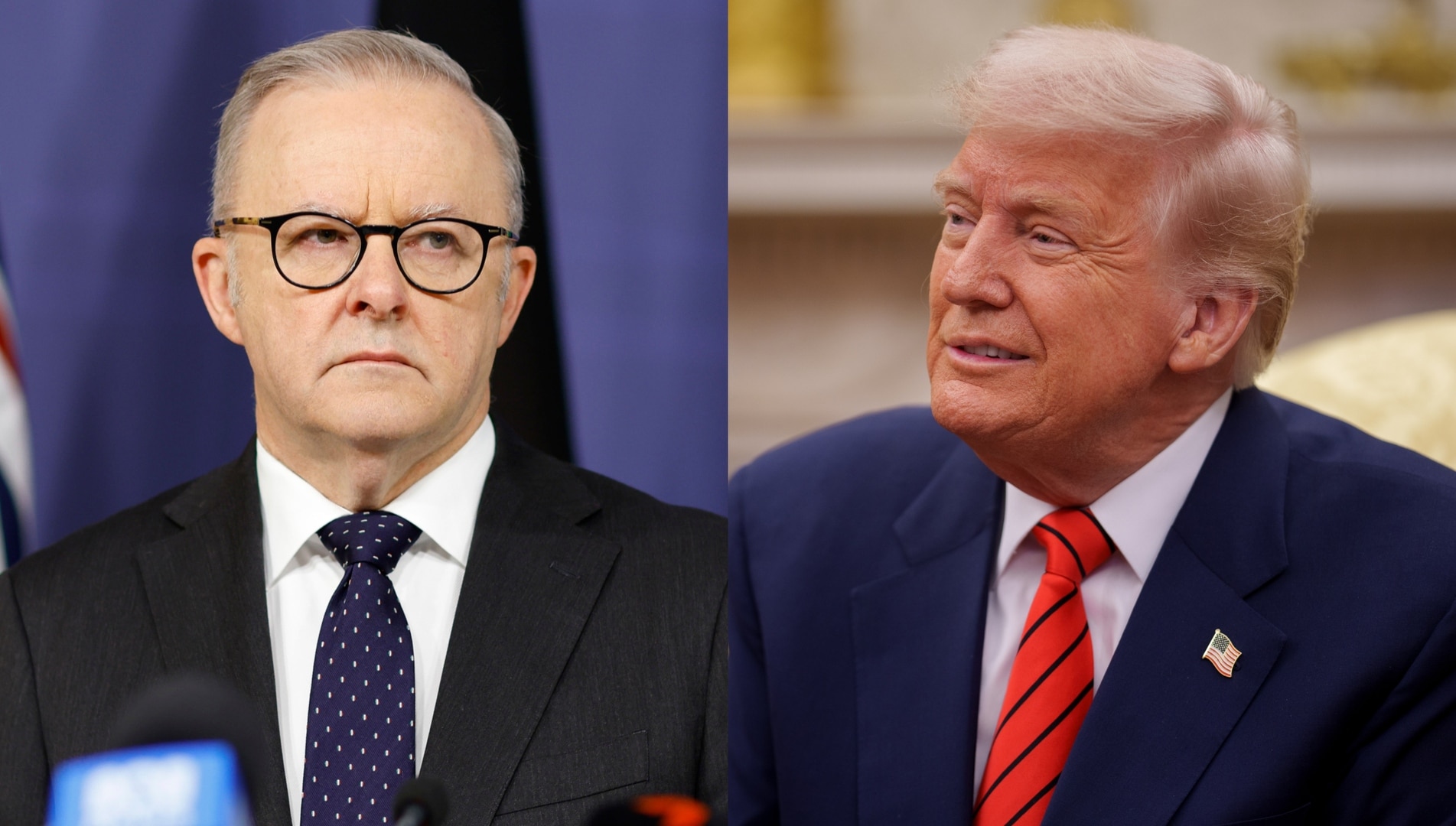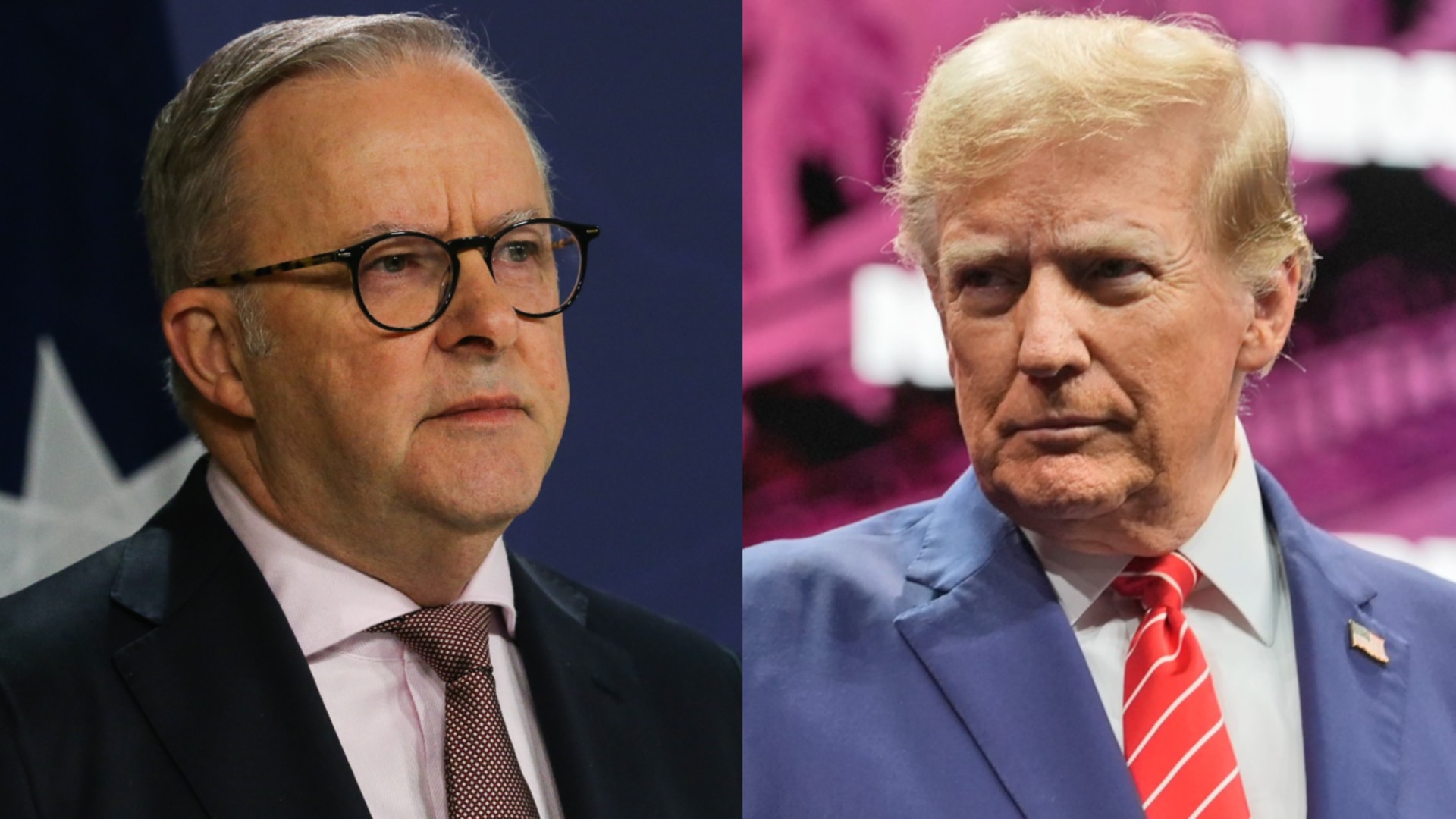Donald Trump to grant a reprieve from full reciprocal tariffs
Australian hopes for a trade reprieve from the US have been buoyed after Donald Trump said he ‘may give a lot of countries breaks’ from the imposition of full reciprocal tariffs from April 2.

A key justification held by the Albanese government for an Australian reprieve from Donald Trump’s April 2 reciprocal levies is that – even accounting for non-tariff trade barriers across sectors from wine to pharmaceuticals – Washington would still run a trade surplus with Canberra.
Mr Trump has revealed that he “may give a lot of countries breaks” from the reciprocal tariff regime amid speculation a group of nations, dubbed the “dirty 15”, will be the primary targets of the levies introduced in early April. Treasury Secretary Scott Bessent has made clear these nations – while not named – will be targeted for running major trade imbalances with America.
Trade experts believe there are strong reasons to expect Australia would be excluded from this grouping on account of Washington’s longstanding trade surplus with Canberra. The Australian also understands that no clear position has yet been articulated to the Albanese government about whether it will be hit by the reciprocal tariffs, their timing and if particular sectors are at risk.
Yet Australia is not alone in this regard, with this also being the case for other nations in the Indo-Pacific region, including India and Japan, which are also working behind the scenes to determine how they might be impacted by the new tariffs and what the US reciprocal trading regime could look like. There is a belief in Canberra that Mr Trump himself is the key figure determining the future of US trade policy and that, beneath him, there are competing views about how various countries – including Australia – should be treated.
Hopes were buoyed in Canberra on Tuesday that Australia would have a strong case to be excluded after the US President gave the clearest sign yet that he would not impose full reciprocal tariffs on some nations.

“I call it Liberation Day – April 2 is Liberation Day,” Mr Trump said. “April 2 will be a big day. That will be reciprocal day. And we’ll be bringing some of the money back that’s been taken from us.”
But Mr Trump added that “we may take less than what they’re charging, because they’ve charged us so much I don’t think they could take it. In other words, they’ve charged us so much that I’m embarrassed to charge them what they’ve charged us. But it’ll be substantial, and you’ll be hearing about that on April 2.”
Mr Trump did not identify the nations to which he would give “breaks” or which could be excluded entirely from his planned reciprocal tariffs. But the Australian government believes the best approach is to take Mr Trump at face value about his plans for future tariffs.
It also expects to have a persuasive case to be granted a reprieve, although it was still very much a case of “wait and see”. Engagement from Canberra has taken place at the senior levels of the Trump administration to present the Australian case.
The US President made clear that a series of tariff announcements would also be made separately from the April 2 reciprocal levies and that these could be unveiled in the coming days.
“We’ll be announcing some additional tariffs over the next few days, having to do with automobiles, cars, and having also to do a little bit with lumber down the road. Lumber and chips,” he said. “We are going to be doing automobiles, which you’ve known about for a long time. We’ll be announcing that fairly soon, over the next few days, probably, and then April 2 comes. That will be reciprocal tariffs.”

Responding to an invitation by US trade representative Jamieson Greer to identify “unfair trade practices by other countries”, the American Chamber of Commerce in Australia made the case for free trade to be maintained with Canberra. It noted that Australia had a trade surplus of $US17.9bn in 2024 and that Washington had run trade surpluses every year since 1952.
Signed by chief executive April Palmerlee and dated March 11, the ACCA said Australian companies had supported 180,000 US jobs spanning 83 sectors across 30 states and had invested $US21bn in new capital projects between 2003 and 2017.
“In addition to a trade relationship which makes the United States more prosperous, Australia’s position as a trusted ally makes the US stronger and safer,” she said.
“Australia has committed to paying the United States US$3bn (including an initial payment of AUD$500m made last month) to support the US submarine industrial base as part of the security relationship known as AUKUS.”
Speaking at a cabinet meeting in Washington on Monday local time, US Commerce Secretary Howard Lutnick said that April 2 would be the day “when the rest of the world starts to treat America with respect”.
“That’s American Liberal Day,” he said. “It’s going to take care of America. It’s going to launch the External Revenue Service to start to build the power and prestige of America back.”
Australian Chamber of Commerce and Industry chief executive Andrew McKellar said that business was working “very closely” with Albanese government on the issue of US tariffs.
“It’s a full-court press,” he told the Seven Network. “We don’t know what the outcome will be, but we are hopeful. And we’re putting the best case forward with government on that.”






To join the conversation, please log in. Don't have an account? Register
Join the conversation, you are commenting as Logout